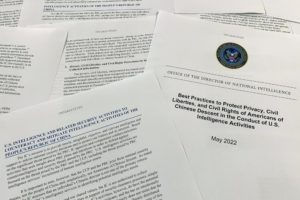GENEVA (BLOOMBERG) – A severe household water shortage that two out of five people in the world face is undermining efforts to contain the coronavirus pandemic.
Frequent and thorough hand washing is among the most effective measures in restricting the spread of the virus because the primary routes of transmission are droplets and direct contact, according to the World Health Organisation.
Yet, some three billion people don’t have access to running water and soap at home, and four billion suffer from severe water scarcity for at least one month a year, the United Nations group UN-Water said.
“It is a disastrous situation for people living without access to safe water and safely managed sanitation,” UN-Water chair Gilbert F. Houngbo said in an interview.
“The chronic under-investment has left billions vulnerable, and we are now seeing the consequences.”
Years of deferred investments in clean water and sanitation are now putting everyone at risk as the virus spreads through developed and developing nations generating a cycle of infection and reinfection.
The world needs to spend US$6.7 trillion (S$9.2 trillion) on water infrastructure by 2030, according to the UN, not just for the urgent sanitation needs, but to tackle longer-term issues from the pandemic such as providing better irrigation to head off a potential food crisis, Mr Houngbo said.
Covid-19: Don’t miss the latest on the outbreak and its impact
Stay in the know with e-mail alertsSign up
By signing up, you agree to our Privacy Policy and Terms and Conditions.
Some companies have stepped in to offer solutions for the most urgent problems.
Japan’s Lixil Group Corp, which owns brands such as American Standard and Grohe, worked with Unicef and other partners to create an off-grid hand washing gadget that needs only a small amount of water in a bottle.
For US$1 million it will make 500,000 units in India to be donated to serve 2.5 million people before it starts retail sales.
It’s a rapid, short-term response to help fight the pandemic, but more sustainable investments are needed, such as installing piped water to more homes, said Ms Clarissa Brocklehurst, faculty member of the Water Institute at University of North Carolina and a former water, sanitation and hygiene chief at Unicef.
WATER INEQUALITY
The lack of access to basic water and sanitation is one more example of the lethal effects of inequality being exposed by the pandemic.Related Story
The impacts of water mismanagement are felt disproportionately by the poor, who are more likely to rely on rain-fed agriculture for food and are most at risk from contaminated water and inadequate sanitation, the World Bank said.
Underprivileged people in cities are particularly vulnerable, as they often live in densely populated areas where social distancing is hard, especially if they have to share a water source.
Transmission in the Americas has been tougher to contain in poor urban areas that have limited access to water, sanitation and public health services, said Ms Carissa Etienne, director of the Pan American Health Organisation.
As many as 5.7 billion people could be living in areas where water is scarce for at least one month a year by 2050, creating unprecedented competition for water, said Mr Houngbo.
By one estimate, each degree of global warming will expose about 7 per cent of the world’s population to a decrease of renewable water resources of at least 20 per cent. Limiting warming to 1.5 deg C, compared to 2 deg C, may reduce climate-induced water stress by as much as 50 per cent.
“Hand washing for so long has been what I would call infantilised,” Ms Brocklehurst said.
“All of a sudden, it’s a matter of life and death and adults are teaching themselves hand-washing songs.”
Read the latest on the Covid-19 situation in Singapore and beyond on our dedicated site here.
Get The Straits Times app and receive breaking news alerts and more. Download from the Apple App Store or Google Play Store now.




